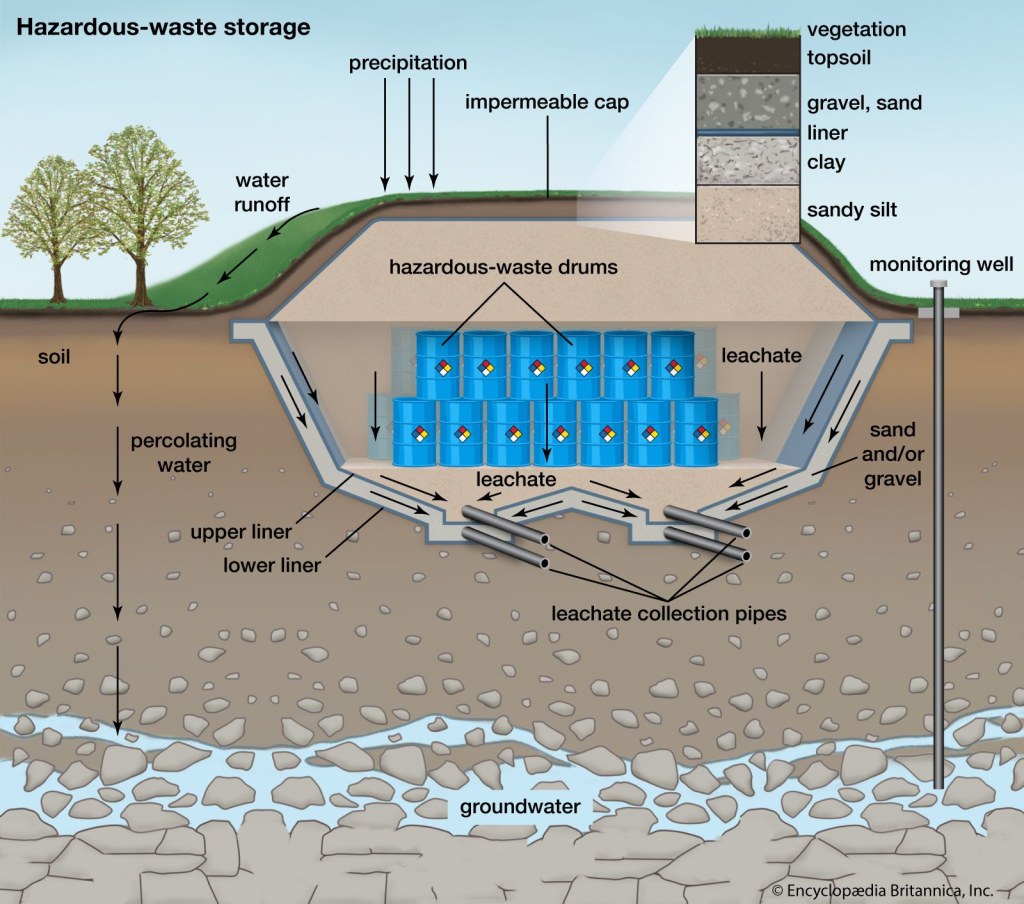Discover The Most Cost-Effective Approach To Hazardous Waste Management: What Is The Cheapest Method?
What is the Cheapest Method of Dealing with Hazardous Waste?
Introduction
Hello Shopper,
2 Picture Gallery: Discover The Most Cost-Effective Approach To Hazardous Waste Management: What Is The Cheapest Method?


Welcome to our comprehensive guide on the cheapest method of dealing with hazardous waste. Hazardous waste poses a significant threat to our environment and human health, and it is crucial to handle it properly to minimize the risks involved. In this article, we will explore various methods and techniques that can help you effectively deal with hazardous waste without breaking the bank.

Image Source: mdpi-res.com
Let’s jump right in and find out more about the cheapest methods available for managing hazardous waste.
What is Hazardous Waste?
🔍Hazardous waste refers to any material that poses a threat to human health or the environment due to its physical, chemical, or biological characteristics. It can be generated by industrial activities, healthcare facilities, households, and other sources. Examples of hazardous waste include chemicals, solvents, pesticides, batteries, and medical waste.

Image Source: britannica.com
Dealing with hazardous waste requires careful consideration and adherence to strict regulations to prevent pollution and negative impacts on both human and environmental well-being.
Who is Responsible for Dealing with Hazardous Waste?
🔍Responsibility for dealing with hazardous waste lies with the generator, which could be an individual, a business, or an organization. The generator is responsible for ensuring proper identification, handling, storage, and disposal of the hazardous waste they produce. It is crucial to comply with local regulations and work with licensed waste management companies to manage hazardous waste effectively and responsibly.
When Should Hazardous Waste be Managed?
🔍Hazardous waste should be managed as soon as it is generated to minimize risks and prevent any harm to human health and the environment. It is important to have a waste management plan in place to handle hazardous waste promptly and efficiently. Regular assessments and monitoring should be conducted to identify any potential hazards and take appropriate actions accordingly.
Where Should Hazardous Waste be Managed?
🔍Hazardous waste should be managed in specialized facilities or treatment centers that are designed to handle such materials safely. These facilities are equipped with the necessary infrastructure, trained personnel, and processes to ensure proper storage, treatment, and disposal of hazardous waste. It is important to work with licensed waste management companies and follow local regulations to determine the appropriate facility for managing hazardous waste.
Why is it Important to Manage Hazardous Waste?
🔍Proper management of hazardous waste is essential to protect the environment, human health, and prevent pollution. If not handled correctly, hazardous waste can contaminate air, water, and soil, leading to severe consequences such as respiratory issues, water contamination, soil degradation, and even long-term health problems. By managing hazardous waste effectively, we can minimize these risks and contribute to a healthier and safer ecosystem for future generations.
How to Deal with Hazardous Waste
🔍Dealing with hazardous waste involves several steps that need to be followed diligently to ensure safe and cost-effective management:
Identification: Properly identify hazardous waste materials through labeling and knowledge of their characteristics.
Segregation: Separate hazardous waste from non-hazardous waste to prevent contamination.
Storage: Store hazardous waste in appropriate containers and areas to avoid leaks or spills.
Treatment: Consider various treatment options like recycling, neutralization, or incineration to reduce the hazardous nature of the waste.
Disposal: Dispose of the treated waste in authorized facilities or through licensed waste management companies.
Documentation: Maintain accurate records of hazardous waste generation, management, and disposal for regulatory compliance.
Training and Education: Ensure that all personnel involved in handling hazardous waste are properly trained and equipped with the necessary knowledge and skills.
Advantages and Disadvantages of Dealing with Hazardous Waste
Advantages:
Cost savings: The cheapest method of dealing with hazardous waste can help organizations save money on waste management expenses.
Environmental protection: Proper handling and disposal of hazardous waste contribute to the preservation of the environment and prevent pollution.
Compliance with regulations: Managing hazardous waste efficiently ensures compliance with local and national regulations, avoiding penalties and legal issues.
Disadvantages:
Initial investment: Setting up proper infrastructure and training personnel for handling hazardous waste may require an initial investment.
Complexity: Dealing with hazardous waste requires expertise and understanding of regulations, which can be challenging for organizations.
Frequently Asked Questions
1. Is it possible to recycle hazardous waste?
🔍Yes, certain types of hazardous waste can be recycled. Recycling helps reduce the environmental impact of hazardous materials by extracting valuable resources and reducing the need for raw materials.
2. Can individuals dispose of hazardous waste?
🔍Individuals can dispose of small quantities of hazardous waste at designated collection points or through special collection events organized by local authorities.
3. Are there any alternatives to hazardous chemicals?
🔍Yes, there are alternative chemicals and materials available that are less hazardous or non-hazardous. It is important to explore and adopt these alternatives to minimize the generation of hazardous waste.
4. How can I find a licensed waste management company?
🔍You can contact your local environmental agency or check their website for a list of licensed waste management companies operating in your area.
5. Can hazardous waste be incinerated?
🔍Yes, incineration is one of the methods used for the treatment of hazardous waste. However, it should be carried out in specialized facilities that meet strict environmental regulations to prevent air pollution.
Conclusion
In conclusion, effectively dealing with hazardous waste is crucial for the protection of the environment and human health. By following the proper methods and techniques, organizations and individuals can manage hazardous waste in a cost-effective manner. It is important to stay updated with regulations and work with licensed waste management companies to ensure compliance and minimize the risks associated with hazardous waste. Together, we can create a safer and cleaner environment for future generations.
Final Remarks
Disclaimer: The information provided in this article is for educational purposes only and should not be considered as professional advice. It is always recommended to consult with experts and comply with local regulations when dealing with hazardous waste.
This post topic: Shopping



